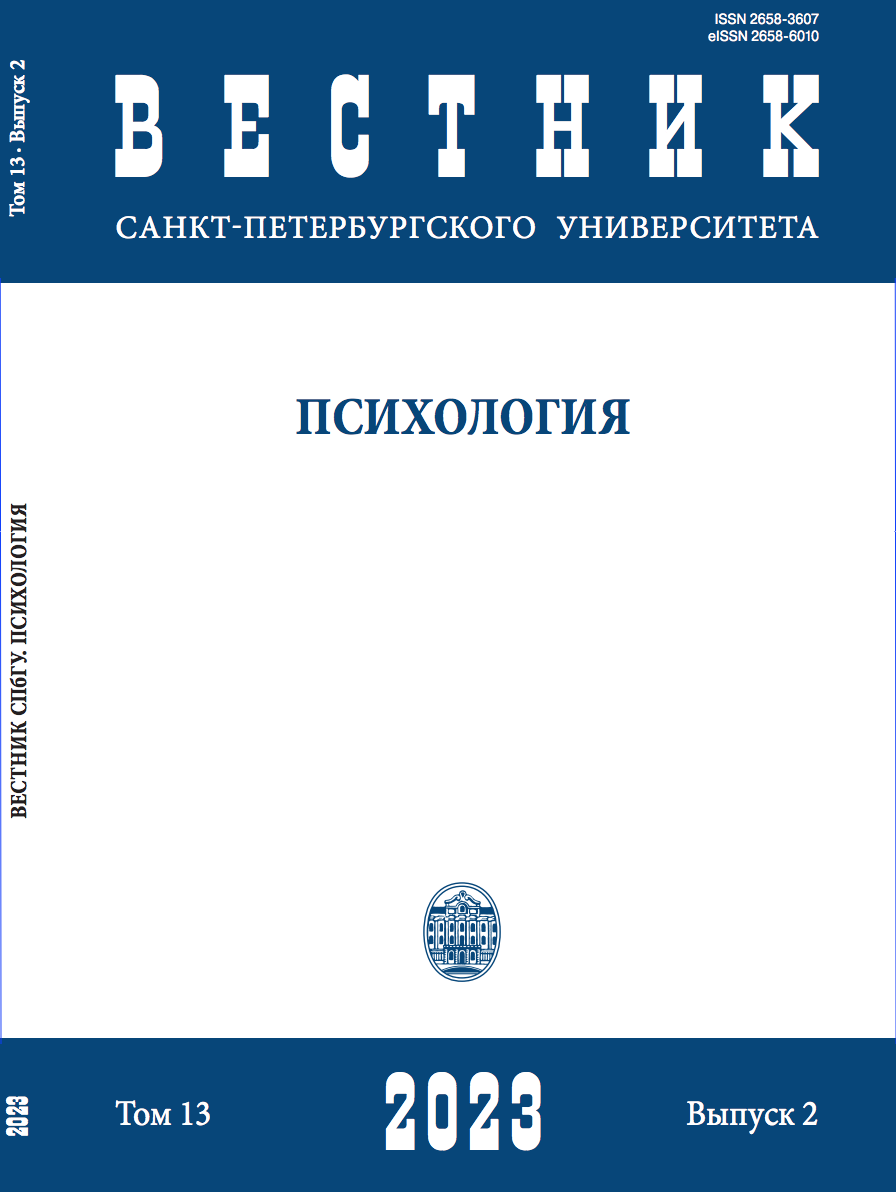Русскоязычная адаптация опросника ProQOL (Professional Quality of Life) Б.Стамм
Аннотация
Работа посвящена русскоязычной адаптации опросника ProQOL (Professional Quality of Life) Б.Стамм, направленного на диагностику позитивного и негативного аспектов качества профессиональной жизни у представителей помогающих профессий — удовлетворенности от помощи другим людям и утомления от сочувствия. Опросник апробировался на выборке психологов-консультантов (N=304, из них 84% — женского пола) в возрасте от 22 до 66 лет (M=39, SD=8) и со стажем консультативной работы от 1 года до 29 лет (M=6,9, SD=6,5). По результатам эксплораторного и конфирматорного факторного анализа было выбрано четырехфакторное решение, которое соответствует следующим шкалам опросника — удовлетворенность работой, удовлетворенность профессией, вторичная травма, выгорание. С опорой на корреляции между первичными шкалами предлагается подсчитывать также показатели по шкалам второго порядка — удовлетворенность и утомление. Внутренняя согласованность первичных шкал варьирует от 0,71 до 0,80, а внутренняя согласованность шкал второго порядка равна 0,85 и 0,80 соответственно. Удовлетворенность профессией отрицательно коррелирует с выгоранием (r=–0,51, p<0,001) и вторичной травмой (r=–0,31, p<0,001), при этом удовлетворенность работой отрицательно коррелирует с выгоранием (r=–0,26, p<0,01) и не коррелирует со вторичной травмой (r=–0,04). В статье также анализируется, как эффективность деятельности связана с качеством профессиональной жизни у начинающих психологов-консультантов (N=54). В качестве главного результата было установлено, что чем выше консультант оценивает свою эффективность при работе с запросом клиента, тем выше его удовлетворенность профессиональной деятельностью (r=0,37, p<0,01) и ниже уровень выгорания (r=–0,46, p<0,001).
Ключевые слова:
качество профессиональной жизни, психологи-консультанты, удовлетворенность профессиональной деятельностью, утомление от сочувствия, выгорание, вторичная травма, опросник ProQOL
Скачивания
Библиографические ссылки
References
Загрузки
Опубликован
Как цитировать
Выпуск
Раздел
Лицензия
Статьи журнала «Вестник Санкт-Петербургского университета. Психология» находятся в открытом доступе и распространяются в соответствии с условиями Лицензионного Договора с Санкт-Петербургским государственным университетом, который бесплатно предоставляет авторам неограниченное распространение и самостоятельное архивирование.




